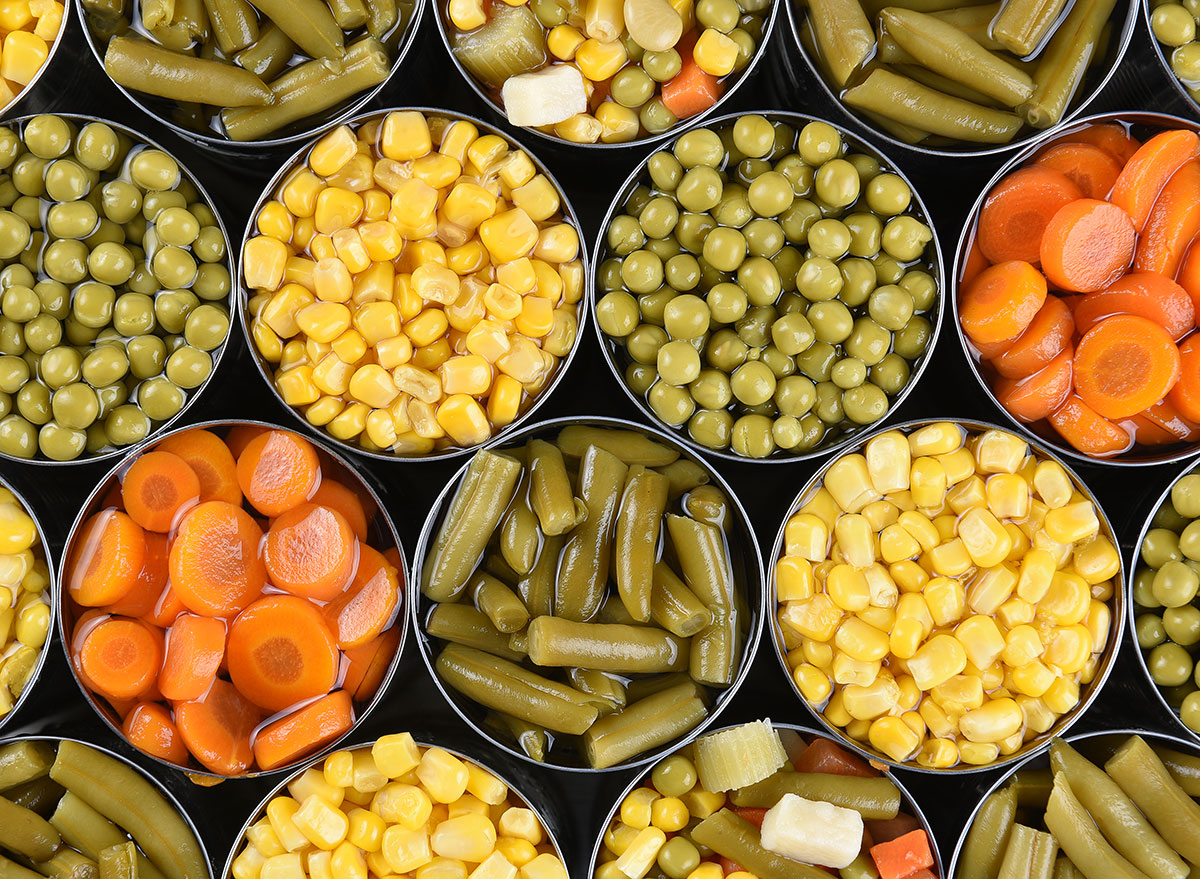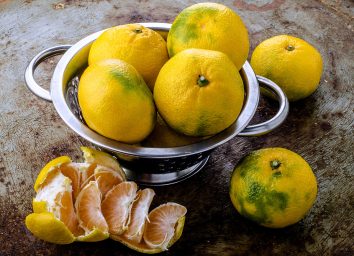Side Effects of Eating Too Many Canned Foods

During the pandemic, a lot of people stocked up on non-perishable foods to limit the number of grocery trips they would have to make. However, can a diet that fails to incorporate fresh foods cause adverse health effects over time?
We asked Arielle Kestenbaum, RD, CDN, who launched FareMeals.com—a free resource that helps families learn how to cook healthful meals that are both affordable and easy-to-make—to provide insight on the importance of limiting canned food consumption.
READ MORE: Click here for all of our latest coronavirus coverage.
What are some of the potential harms of eating too many canned foods?
Canned foods are often packed with excess sodium and other preservatives to increase their shelf life, which could cause negative side effects on your health, especially if your diet is predominantly full of them.
“Too much sodium can cause negative effects on blood pressure and other heart-related conditions, and may also lead to water retention that may cause swelling,” says Kestenbaum.
While not as common anymore, there is the concern that canned foods are tainted with BPA. In fact, about 10% of canned foods still have linings that carry the chemical, and if ingested regularly, Kestenbaum says it’s been associated with a rise in blood pressure and could even increase in cancer risk. If you’re going to purchase canned foods, make sure the can clearly states that it’s BPA-free.
Do fruits and veggies offer more nutritional value when they’re fresh or canned?
“It depends. Most of the time there is no real difference in the nutritional value of canned versus fresh fruits and vegetables,” says Kestenbaum. “What does make the difference, however, is what’s added to preserve or ‘increase’ the flavor.”
Think about that can of peach halves in your pantry. A lot of canned fruits are stored in syrups, which are loaded in excess sugar. Whereas excess sodium is the main concern in canned vegetables.
“It’s important to look for reduced-sodium or no sodium added options,” says Kestenbaum. “If this is not an option, try rinsing the vegetables very well before consuming.”
If you do go the canned route, Kestenbaum points out that fruits or vegetables are in their most nutritious state upon opening the can, so she suggests eating them as quickly as possible to ensure you receive all of the nutrients.
Canned vs. frozen. Is one better than the other?
Generally, frozen produce is better, because the produce enters the freezing process while at its peak ripeness, which is also when it contains the most nutrients. Frozen fruits and vegetables are also much less likely to contain preservatives and often taste fresher than canned ones. At the end of the day, though, it largely depends on what’s most readily available. Eating some form of fruits and vegetables is better than eating none at all.
“Canned fruits [and] vegetables have the tendency to lose some of their nutritional value from the heat they endure during the canning process,” says Kestenbaum. “That being said, many canned fruits and vegetables are still full of great nutrients, and therefore whichever is most accessible could and should be used.”








